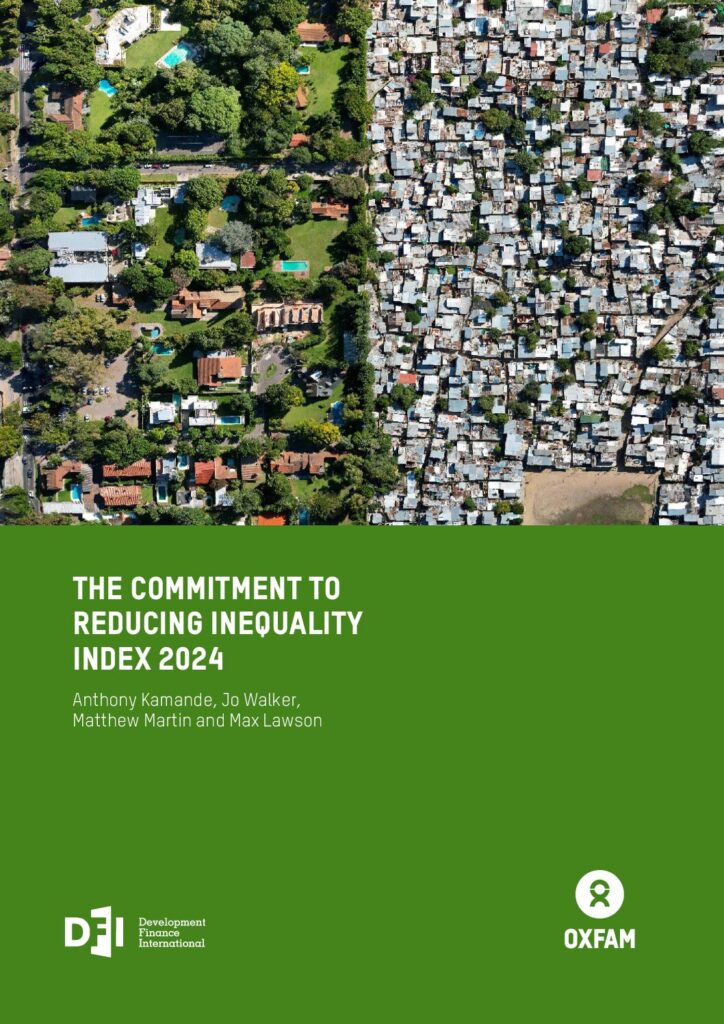
Now in its fifth edition, the Commitment to Reducing Inequality Index (CRI) assesses 164 countries and a region commitment to fighting inequality. The CRI 2024 offers powerful new evidence on whether governments are acting to reduce inequality through policies on public services, fair taxation, and labour rights.
The CRI 2024 reveals negative trends in policy measures in the vast majority of countries since 2022. Four in five countries have cut the share of their budgets going to education, health, and/or social protection due to crushing debt burdens, austerity and conflicts; four in five have backtracked on progressive taxation; and nine in ten have regressed on labour rights and minimum wages. Combining data from these three pillars, the Index shows that nine out of ten countries have backtracked. Without urgent policy actions to reverse this worrying trend, economic inequality will almost certainly continue to grow.
On the other hand, the international community is moving to accelerate global action. The World Bank and potentially the UN are adopting new indicators to measure inequality more accurately, providing a unique opportunity for the IMF and World Bank to enhance their commitment to accelerate progress: the report suggests exactly how they could better support governments, allowing us to make significant progress in reducing inequality.